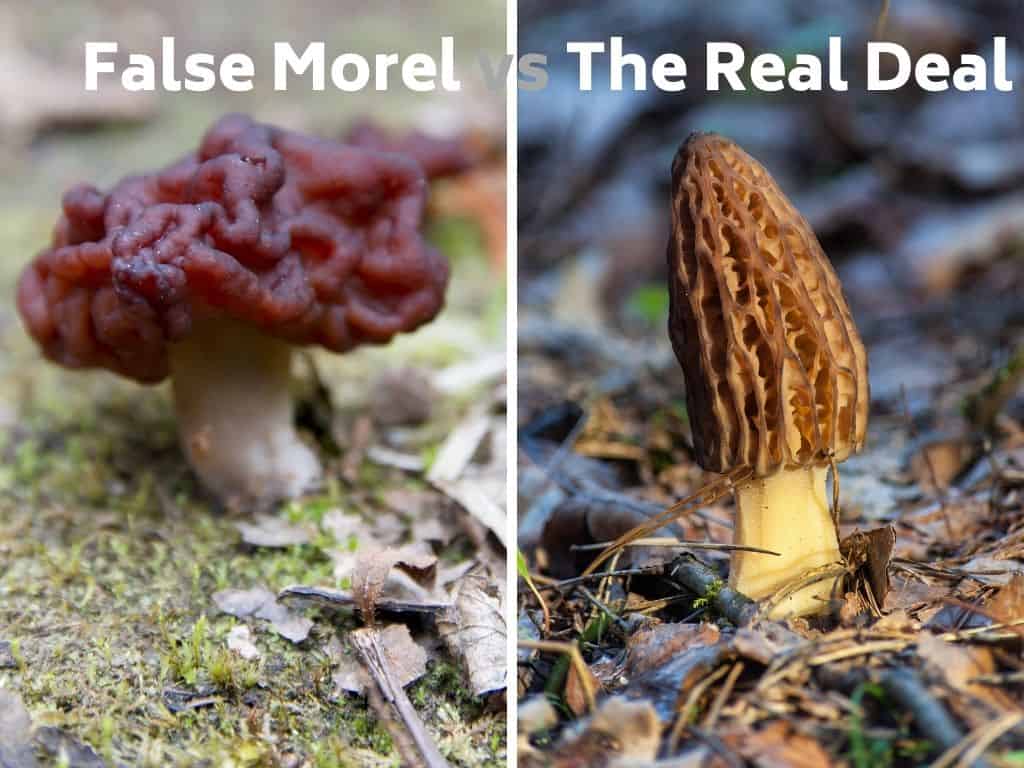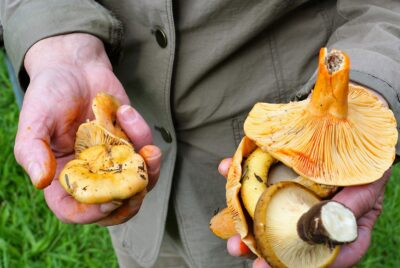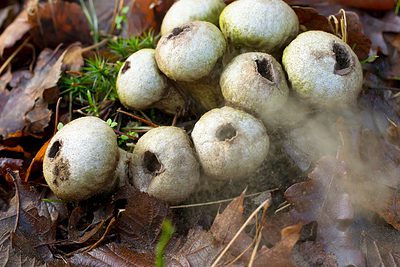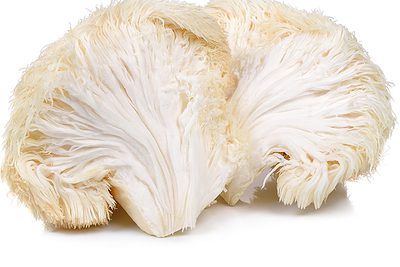Mushroom lovers are particularly fond of springtime, the season to forage for morel mushrooms but there is an imposter to beware of, the false morel mushroom.
These spring delicacies burst with fresh flavor reminiscent of the woods where they are picked, and they boast a number of health-boosting properties. But beware the false morel mushroom. There are several species of poisonous morel-like mushrooms, found in the same places and resembling the real morel.
A false morel mushroom may not always be fatal, but there are those that can cause sickness and some that can even lead to death.
So when you’re looking for the flavorful and medicinal morel mushroom, be on the lookout for the false morel mushroom.
Like this pin? Pin it on Pinterest

What is a False Morel Mushroom?
There are different species of mushrooms that resemble the true morel, or the Morchella genus of fungi. They go by different names in field guides, such as the Gabled False Morel or Big Red False Morel.
Among the different varieties, one that has a controversial toxic status is the Gyromitra esculenta. Contradictory reports of poisoning have led it to be listed as edible in some parts of Europe. Studies have examined the toxins that remained after eating and the Finnish Food Authority states that it should not be eaten by pregnant and breastfeeding women and children because of residues of the toxin gyromitrin. That’s despite claims that special local cooking techniques make it safe.
In 2020, a study was updated by looking at the toxin gyromitrin. It creates what’s called gastrointestinal toxicity which leads to abdominal pain, nausea and vomiting. That is rarely followed by neurotoxicity such as vertigo, delirium, seizures, stupor and coma. There are differences among individuals linked to metabolism which means reactions may vary. Some people may be more susceptible to its effects, in particular the elderly.
Another false morel is Verpa bohemica which also has an unclear toxic status. There have been reports of poisonings and it is usually listed as toxic in any field guides. It can also cause gastrointestinal disorders in some people. It has a wrinkled thimble-shaped cap so it is often mistaken for a true morel.
There are other varieties of poisonous mushrooms that resemble morels. Once dried, they can be more difficult to identify. And the morel genus itself has many varieties, making it easy to confuse it for another mushroom. There are even instances when sickness is caused by eating morels raw, not cooked enough, or eating too many morels in one meal.
But don’t let that discourage you! Morels are a delicacy worth finding.

The Real Morel
Morel mushrooms are among the most prized of the edible and medicinal mushrooms. Known as Morchella, there are multiple species and subspecies around the world.
Mushroom hunters will often differentiate morels by color, with the most common being yellow morels (Morchella esculenta). There are also white morels (Morchella rufobrunnea and Morchella anatolica) and black morels (Morchella elata being one).
The morel has some other unique characteristics. Spring is the typical fruiting season, but there are some varieties that fruit in summer and fall. Morels can survive in a post-fire habitat. They are also cold tolerant, making them a treat for those in higher elevations and cooler climates.

They are most typically found in the wild in spring. If you are foraging, one of the best ways to know you have a real morel is by cutting it open. A true morel is hollow inside when you cut it open, from the tip of the cap through the stem. Morels have a conical shaped cap, like a thimble, that is covered with pits and ridges that make them look like a pinecone or a sponge.
A false morel – which can be poisonous – has a dense, not hollow stalk. The inside of the stalk will be filled with chunks of tissue or fibers.
As always, and particularly if you aren’t certain, it’s best to consult with an expert before eating any type of mushroom found in the wild.
Morels are nutrient-dense mushrooms, known for their distinct earthy flavor. They are also easy to prepare and cook, and can be added to a variety of recipes.
The Benefits of the Morel
Like other edible mushrooms, you will be glad you’ve added morels to your diet. Morels display the same health properties of other mushrooms: low in fat; high in fiber; rich in vitamins and minerals.
There are recent studies identifying further benefits of the morel. The polysaccharides from the Morchella species seem to have both antioxidant and antitumor properties. Antioxidants are a boost to our well being because they may play a role in protecting us against free radicals, which can lead to heart disease, cancer and other ailments.
The bioactive components of Morchella also show anti-inflammatory activities. Still other studies have found that the Morchella provides immunostimulatory activity, boosting the health of the immune system.
Final Thoughts
In the world of mushrooms, the delicate morel holds high status. Treasured by foragers and revered by chefs, morel mushrooms are a delicious addition to many different recipes.
But there are imposters in the world of mushrooms too, and the morel is no exception. There are several varieties of false morels that impersonate the real morel, and can cause sickness and poisoning.
Once you know you’ve got the real morel, you won’t regret trying this delicious and healthy addition to your diet.
Sources:
https://en.wikipedia.org/wiki/False_morel
https://www.ncbi.nlm.nih.gov/pmc/articles/PMC7472412/
https://www.ncbi.nlm.nih.gov/pmc/articles/PMC6106076/
https://www.ncbi.nlm.nih.gov/pmc/articles/PMC6678217/
https://pubs.acs.org/doi/10.1021/jf020267c
https://nature.mdc.mo.gov/discover-nature/field-guide/morels
https://www.mushroom-appreciation.com/morel-mushroom.html#sthash.psFToymU.dpbs






